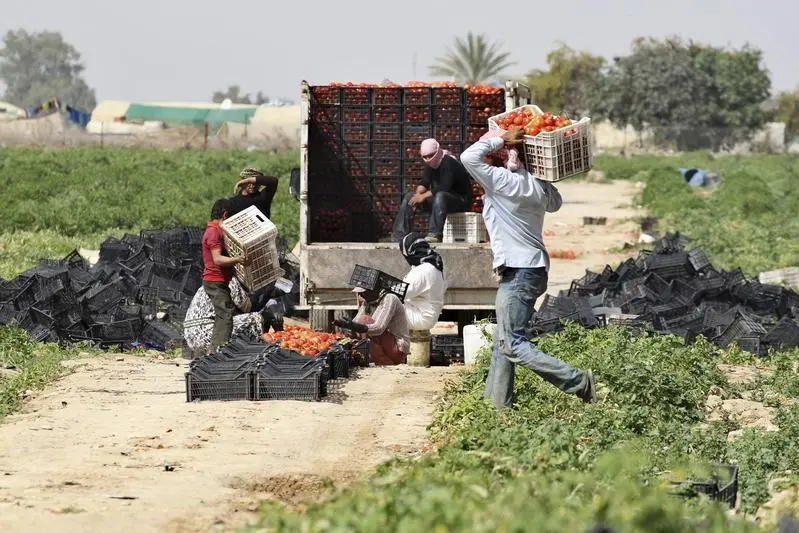PHOTO
Agriculture Minister Khalid Hneifat said that the ministry is working on establishing a national seed bank to preserve local and indigenous seeds, in cooperation with the Hashemite University, which donated JD3 million to fund the project.
His remarks were made on Monday during a media forum organised by the Centre for Defending the Freedom of Journalists (CDFJ), in cooperation with Zain.
Hneifat also noted that wheat cultivation in Jordan in a “self-sufficient” manner requires roughly one billion cubic metres of water. Meanwhile, the agricultural sector consumes 50 per cent of Jordan’s water budget, amounting to 3 billion cubic metres annually.
Jordan’s current wheat stock can cover national consumption for 15 months, according to Hneifat, who noted that “bread prices didn’t witness any rise”, despite the global spike in wheat prices.
He also described studies concerning the danger of food security in Jordan as “inaccurate”, adding that the Kingdom ranked 49th internationally on the 2021 Global Food Security Index, an improvement of 15 places since 2019.
Hneifat pointed out the economic significance of the agricultural sector, as it represents roughly 15 per cent of the country’s overall exports, which reach more than 60 countries.
The sector also contributes 5.5 per cent to GDP, and provides job opportunities in various governorates, he added.
According to Hneifat, the agricultural sector has witnessed a “quantum leap” following the pandemic, as the ministry is receiving “unprecedented” care and attention through the directives of His Majesty King Abdullah.
As part of a plan that targets water harvesting to support rain-fed agriculture, the ministry has established 63 hafirs and dams as well as 2,000 wells, he said, noting that 4,000 additional wells will be installed this year.
Moreover, the Agriculture Ministry plans to plant forests in Qatrana, Wadi Al Abyad and Unaiza once water sources are provided through rainwater harvesting, in addition to utilising wells with non-potable water for irrigation.
The ministry also granted approvals to 12 out of the 15 companies which applied for investment projects in Al Hamad and Sarhan basins, and will be establishing three factories in the Jordan Valley at a cost of JD2.5 million which will specialise in drying and freezing vegetables and manufacturing tomato paste, added Hneifat.
He also noted the ministry’s support for “entrepreneurial and untraditional projects” as the Agricultural Credit Cooperation has provided roughly JD30 million in interest-free loans as well as over JD200 million in loans for agricultural projects in various parts of the Kingdom.
Hneifat added that the Agriculture Ministry is working on establishing a factory for the low-cost and water efficient COCOON agricultural technology, in cooperation with the Royal Society for the Conservation of Nature (RSCN) and the Arab Potash Company (APC).
According to the minister, the National Agricultural Research Centre is an incubator for agricultural innovation. He also added that the ministry will be granting awards for scientific research in the agricultural sector “to improve the quality of production and its ability to compete globally”.
© Copyright The Jordan Times. All rights reserved. Provided by SyndiGate Media Inc. (Syndigate.info).





















